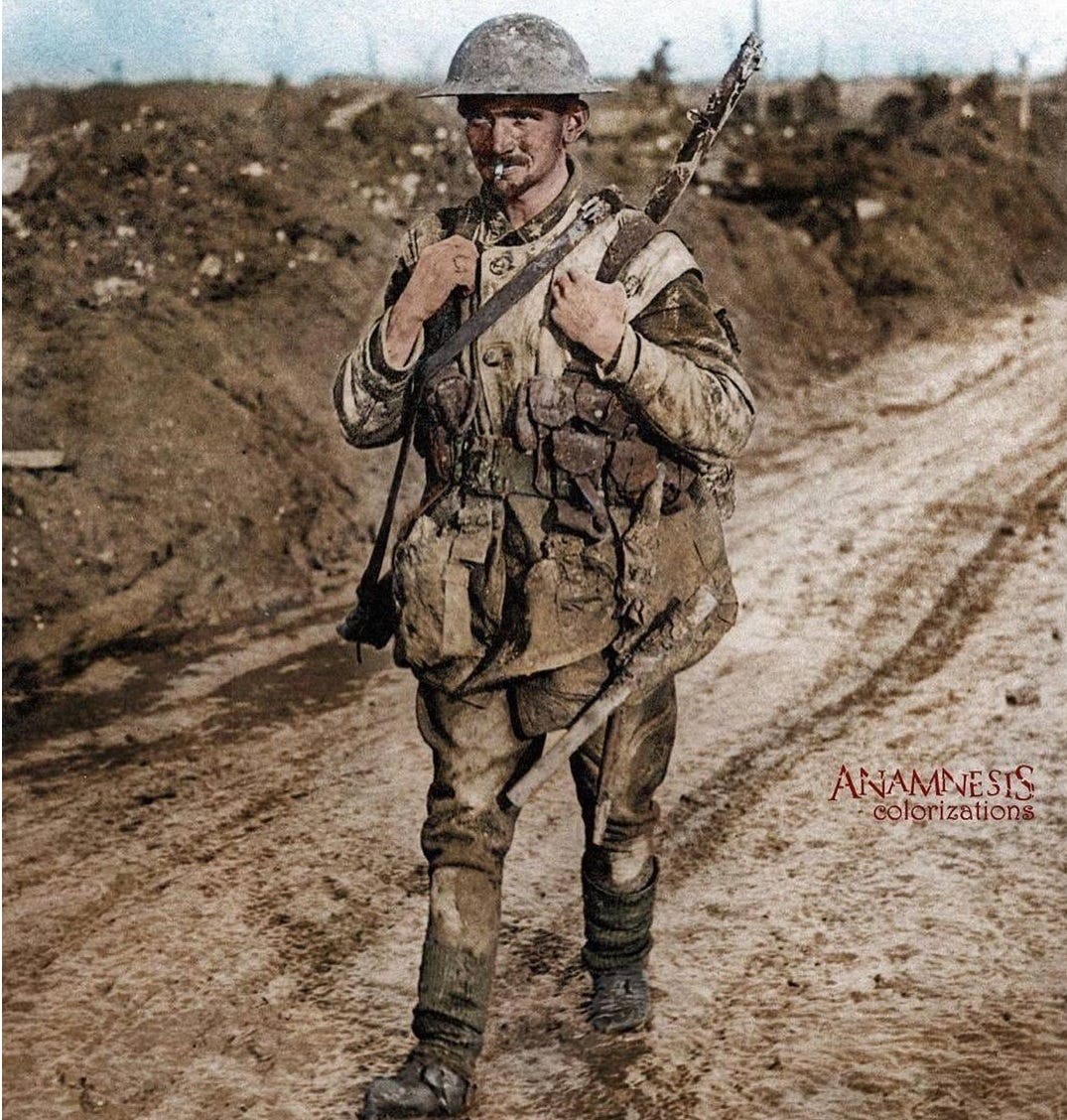
One particular story that stuck with me all my life is the story of Vimy Ridge considered by many to be the birth or coming of age for Canada as a nation.
Four divisions of over 150,000 men from across Canada would work together for in a combined effort and under Canadian command for the first time. This geographically large but otherwise insignificant dominion state of the British Empire would prove during a bitterly cold April in 1917 that our men were every bit as hardy, resourceful, intelligent and courageous as those that made up the world’s leading nations like Britain and France.
In the general course of the war, the battle was not particularly significant. What was significant is that this achievement in successfully dislodging German defenses that had previously claimed the lives of over 150,000 British and French men in previous attempts was uniquely ours.
For the first time, Canada had fought — and won — a large scale battle on its own.
The planning, training, preparation, logistics, mathematics, deception, engineering, professionalism and fighting spirit required to pull this off would have to be world class to succeed.
If Canadians are capable of coming together to tackle an obstacle that requires an ingenuity, strength of character and cleverness effort at this scale — defeating the German Empire in 1917 at a contest of warfare, something the Germans happened to be quite good at, what else is possible?
Anything.
The grit and constitution of the Canadian was confirmed to be capable of every bit the same kind of the high quality human competitor as anyone else on earth.
Our people stood with giants and when the dust had settled, they confirmed we belonged at the table.
Of course, this isn’t very surprising when you consider the founding stock of our country came from storied peoples like Great Britain, France, Germany, Ireland, Netherlands and beyond.
The bravest risk takers from those long established nations of great people chose to set upon the North American continent in pursuit of a life they craft for their own. A new world with a new beginning and all of the risks and dangers that come with it.
These days our enemies like to sloganeer things like “we are all immigrants” which is an incredibly offensive insult to our ancestors. You see, butter-soft handed communists — an ‘immigrant’ of 2023 having an NGO funded with taxpayer money in a workaround scheme to have the native population fund its own replacement wasn’t the norm. There were no international efforts to fund, organize, house, feed and transport millions of people across the world to our continent. There weren’t hotels funded by the citizen. There were no state funded grants, there were no tax incentives to hire temporary foreign workers, there were no diversity-equity-inclusion (DIE, cute) policies that directed as many advantages towards fresh off the boat strangers as possible.
In my personal family history for example, my ancestors were rounded up by the British crown and given an ‘opportunity’ (at gunpoint) to ‘settle’ the new world on behalf of the King of England. With whatever belongings they could carry in the 1773, 189 people were loaded onto a decrepit and arguably not sea worthy vessel named the Hector.
During the weeks long voyage across the Atlantic, 18 passengers succumbed to scurvy, disease, illness and malnutrition. Families were forced to bury loved ones, including many children at sea. Expecting to arrive at an already established territory, the settlers arrived to find nothing but the wilderness and an expectation from the King that production of goods begin immediately. It was also already mid-September.
It was then that my ancestors of Pictou County, Nova Scotia set upon a social media complaint campaign with hashtags, filter photos and virtue signaling. A petition was started and many hands on their hips upset women signed it and explained to the King that they were unhappy with their lot in life and this was like, totally, super oh my god like so, just so SO not okay that it was like, totally ruining their vibes and travel plans.
But in real life, nobody cares. Nobody has ever cared. Nobody is coming to save you, except maybe you.
This isn’t the exception to the rule, this is the rule. This is how it is. This is how it’s always been. There are winners and losers. There are conquerors and the conquered.
There is only what is.
You can only control your own actions and decisions. My ancestors like many of yours simply did what they had to do to survive.
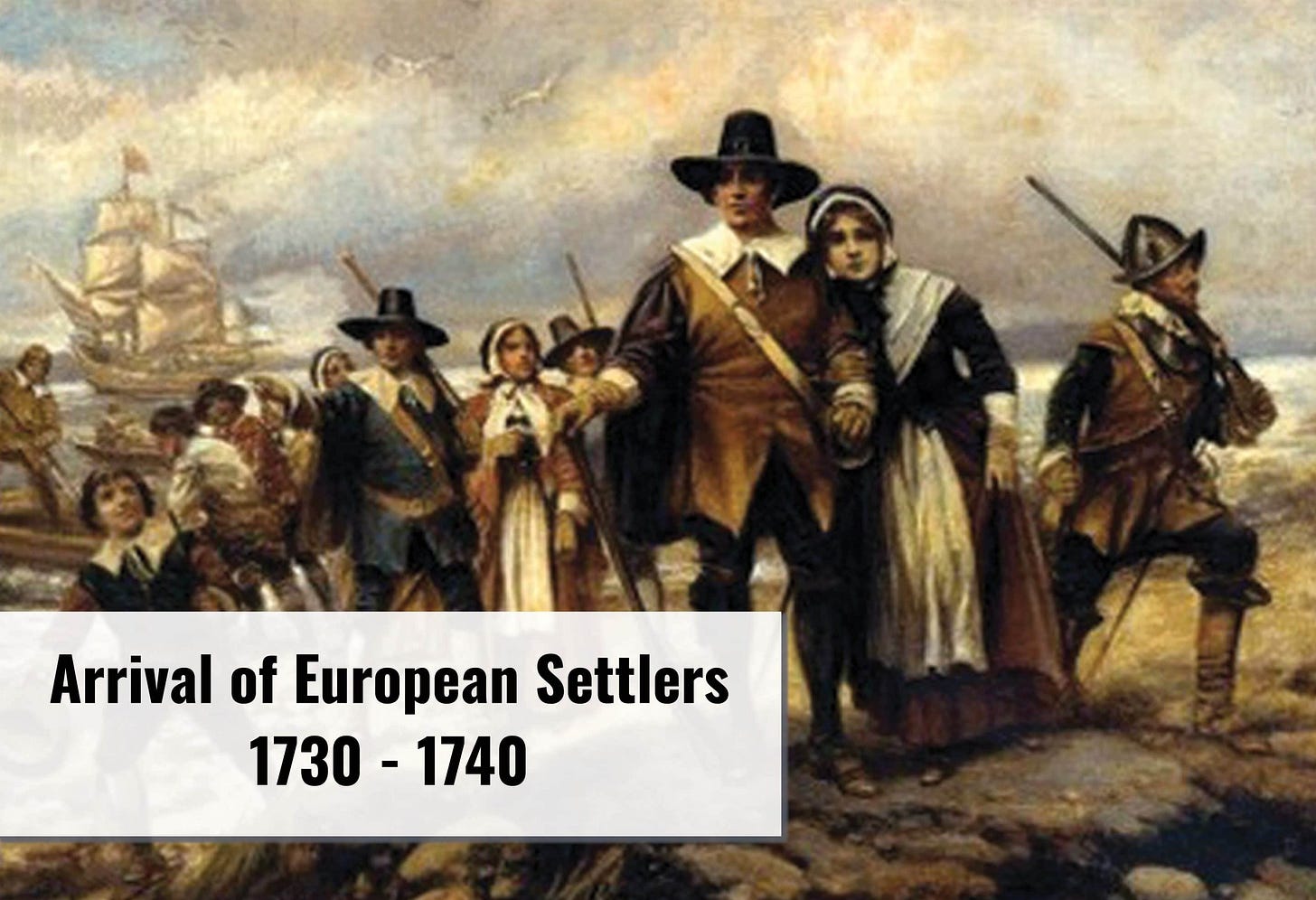
Temporary shelters were constructed, and then more permanent ones. The land was cleared, hunting parties set off and everyone pitched in for the collective survival effort and despite winter fast approaching those brave and resourceful people survived the elements, a foreign continent, hunger, smallpox, war and themselves.
I wouldn’t be here if they hadn’t. Many of us wouldn’t.
The point being that when put into historical context that our current predicaments and problems measured against anything that could quantify true difficulty — we don’t have it that bad.
The truth of the matter is we are far lazier, softer and entitled than those who came before us. Ironically, because they were so successful for so long, an environment of historically unprecedented levels of safety, abundance and opportunity was achieved. Inside this bubble and because of this bubble, too many lived for too long without any real challenge. The average man and woman walking around today having grown up in a world of smoothed edges and rounded corners when faced with real problems and uncertainty, which used to be the norm of life, become overwhelmed with stress and fear.
We’ve lost our edge and with it, our ability to respond to difficult and challenging situations with any meaningful effort.
Sacrifice, discomfort, loss and pain itself is something to avoided at all costs in this contemporary world where feelings are the top currency and virtue signaling to protect them is regarded by the zombie horde as a high place of honor.
In reality, sacrifice, discomfort, loss, pain and even death is sometimes required to achieve a greater collective objective.
Nothing comes for free.
Humans have always been tribal, pack animals. This relatively recent social experiment with radical individualism was only made possible by the immense fortress of safety and security that was provided by 200 years of collective struggle and sacrifice.
If you want to maintain something, you must continue to do what that which was required to achieve it.
If you want to achieve something greater, you must be willing to go further and harder than those that came before.
We have been atomized and reduced down from a proud nation of accomplished people that overcame famine, disease, the elements, war and day to day life difficulty of living in pre-electricity days to the individual.
Just do what you think is good for you, man. Worry about yourself, man. Be an individual, man.
I grew up with all of these ideas as many of you have. Unfortunately, they are not conducive with a healthy, functioning society like the one I inherited and would like to pass on to my children.
A nation is not a flag, it is not a government system, it is not a popular figurehead and it is not a national anthem. All of these things ebb, flow and change with the age. The nation is the people. You, me, those around us. We are the nation. We must come together and work together for our collective interests as a nation or at least as a tribe, or we cannot hope to survive this increasingly polarized and tribal world.
Life is a team sport. I suspect I’m not alone in thinking that competing with entire collective teams who wish to exploit the world around me at mine and my childrens’ expense is not likely to be very successful. Not by myself.
One man didn’t conquer the unconquerable Vimy Ridge.
One woman didn’t birth and raise the city of Halifax.
One drop of rain will not flood a valley.
Remembering not only where we came from but who we came from is foundationally crucial in rebuilding our heavily damaged identity. If you don’t even know who you are, do you think the world will respect you? Should it?
Like blades of grass finding its way through concrete paved over long ago, dozens of small groups of men and women across the western world have begun perhaps instinctively to go back to their roots. Some have become not so small.
The spirit of self reliance, mental and physical toughness combined with a love of your community and people is what made us successful in the past. It’s why our ancestors had the character to survive their challenges and it’s why the men of 1917 were successful in achieving a professional, world class military operation.
It is in our DNA to succeed and survive.
Spreading this message of unity amongst our people is critical for the coming years. Ethnic conflict and struggle for diminishing resources spurred on by institutionalized anti-white hatred paints a grim and difficult forecast when held up alongside the breakneck speed of rapidly changing demographics.
Choosing this path, and it is a choice, will put you firmly in the crosshairs as I touched on in my previous post. If it were easy with ready made dopamine hits to your ego everybody would be doing it instead of making tik-toks and obsessively scrolling social media for phantom internet points that ultimately mean absolutely nothing.
It is difficult and abuse comes with the territory.
I myself am not a special case or an outlier. I am the standard case study in what can come your way when you ditch the script, leave the beaten path and set off into harsh terrain on your own, against the grain.
First comes waves of online and personal attacks by anonymous trolls, many of them are actually paid state agents and may not even be people of your country. These peanut fed drones piggyback on the ‘work’ done by ‘anti racists’ and ‘fascist fighters’ or whatever preposterous mantle they’ve applied to themselves while writing their cringe blog posts not unlike this one. The problem is that they have state backing and these hilarious pontifications by middle aged incels serve as the astroturf foundation level for the smear campaign coming your way.
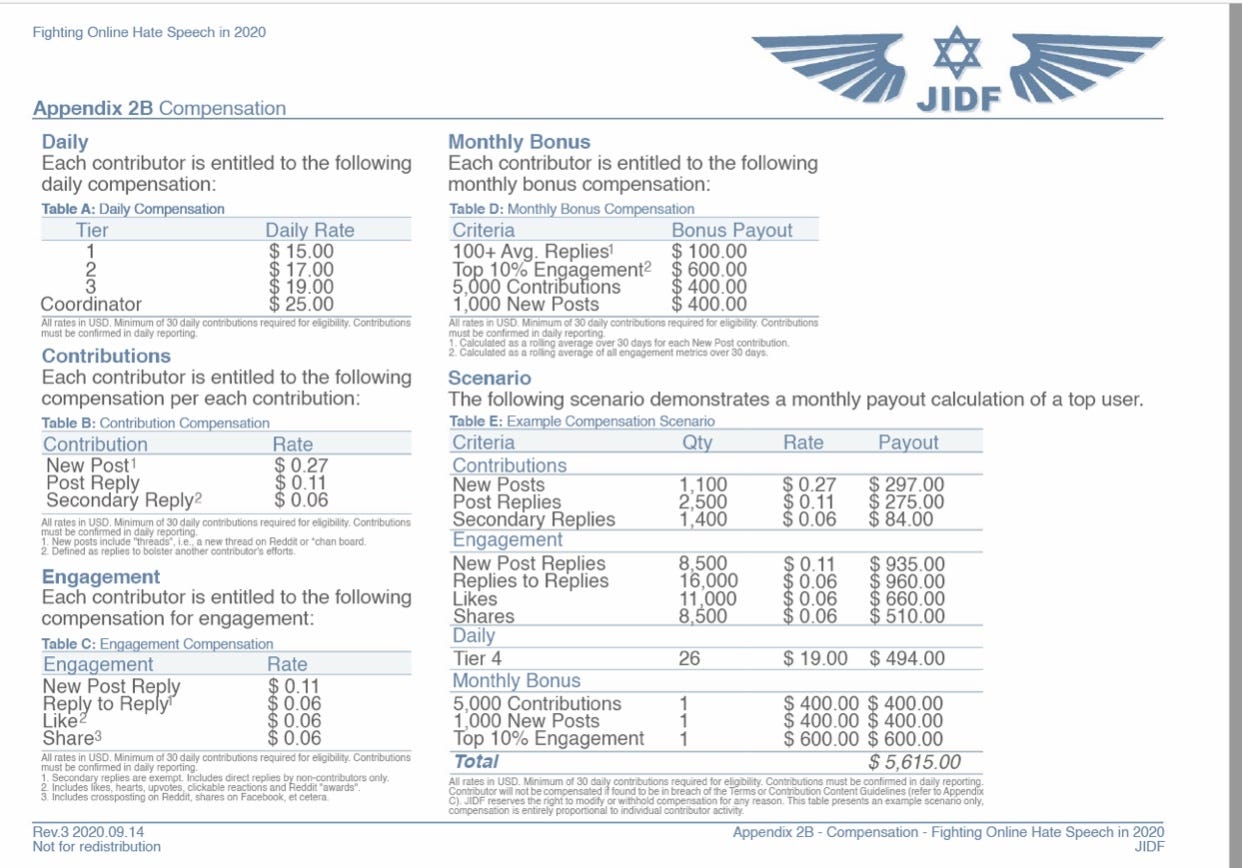
The rough, burned out bulb quality of screeching is refined and re-published by the more professional and higher class-trained agents in placed like the ADL.
These mindless assertions and ruminations by small, petty, inconsequential nobodies serve as the justification for broader hit pieces that carry more social weight in the mind of the average person like CBC, BBC, CNN and so on.
The media smears are then used as a boogeyman to hold up in justifying police investigations, arrests, bank account and employment terminations, travel restrictions, bans on flying, passport denials and even physical attacks by bands of low born goblin folk.
I have succeeded in surviving and thriving in this combative environment only due to the steadfast support and strength of the nation wide community of tens of thousands of trauma bonded folks we have stitched together over the past several years.
We set out to ‘find our friends’ during the pandemic years and to a large extent have been very successful. The continued existence and effect of the community demonstrates this routinely. Of those friends, we must now find and identify potential leaders so we may empower and support them.
”To you from failing hands we throw
The torch; be yours to hold it high.”
No one is coming to help. Superman doesn’t exist. The political establishment has long abandoned us.
We must look to ourselves, as in the past, to conquer these hills and tame this wilderness.
This age of decadence and convenience has created generations of lazy and soft people. It has also produced an excellent proving ground to identify those who are willing to go further, subject themselves to discomfort, pain and sacrifice.
As I’ve said earlier, mental and physical toughness isn’t a ‘nice to have’. It’s a must have. These folk are not born, they are made through experience, trial, challenge, failure and success. Most will only go as far to read about or look at pictures of it. It is walking the hard road that makes a resilient man.
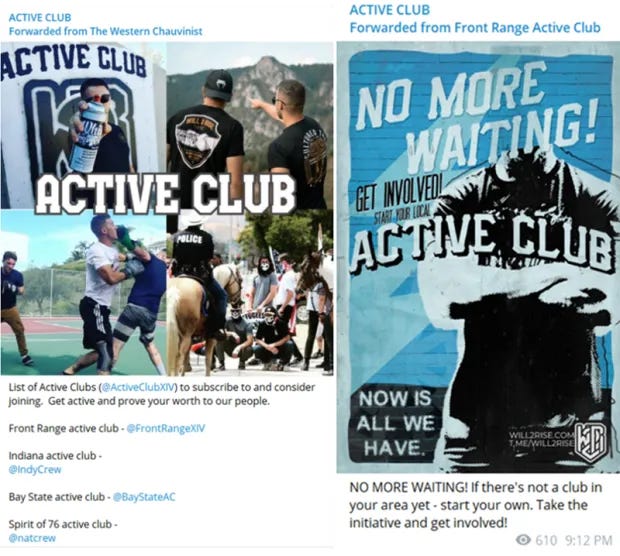
If a man is unwilling to take responsibility for himself and his own body, at a bare minimum, you would be foolish to expect much more than idle chatter or social media noise.
At an individual level, we are responsible for ourselves and must hold ourselves accountable to be as healthy, strong and capable as can be not just for our own self interest and the obvious benefits but so we can be of as much use to our family, friends and community as possible.
The highest sense of satisfaction and fulfillment I have experienced in life is being of positive service to others. I believe this is near or at the core of what a man’s purpose is — to be of service to his people.
You can’t do much of that as an atomized, un-healthy, broke individual with nothing but an anonymous twitter account.
But bolstered by other capable men that genuinely want to see you do well, become stronger, become a better version of yourself and hold you accountable in doing so, well, commit yourself to that old school way and watch your life change.
If you have the guts. Your ancestors did, you wouldn’t be here if they didn’t.
It is my intention, with the assistance of some trusted brothers and friends to establish a return to this old fraternal community worldview with a respectable but achievable fitness standard as a barrier of entry to weed out pretenders.
If one isn’t willing to subject themselves to the mild or moderate discomfort of physical self-improvement, which is the foundational cornerstone of all self-improvement, we simply will not be interested in what you ‘think’ you can bring to the table.
If we cannot repair the individual man and woman, we cannot repair anything beyond. It starts with you.
Demonstrate that you take yourself seriously and that this is something you are willing to suffer for. In this way, it tests your own measure of self discipline and dedication.
No amount of money can buy it.
Your name or status mean nothing.
What you did yesterday, was yesterday.
In the crucible of pain, we are all equals.
Put up, or shut up.
“We are here to make each other better.” - every good soldier I served with.
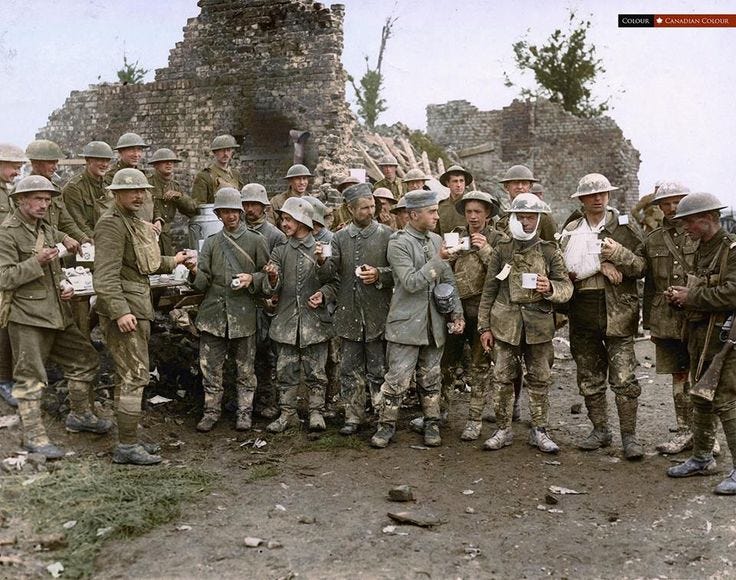
One lion could fight off a dozen hyenas, but not thirty. Two could fight off thirty, but not sixty.
Instead of hoping to win the lottery that some kind of great figure appears to lead us ahead, we should canvass and assemble our own people, build each other up incrementally and pulling together, as hard as we can.
Maybe we don’t need any great man to save our future.
Maybe we need a brave few that are just good enough to be great together.
-RD




I relate very much with this ode to independence, self-reliance, and community spirit. My father was a child immigrant from Ireland whose father, my grandfather, started in Canada by putting tin cans on shelves in a Dominion store. He built himself through a ma and pa shop to constructing Hall's Cottages in Honey Harbour on Georgian Bay, where I spent my early summer vacations while growing up in Toronto.
My mother was definitely Old Stock, a descendant of my great, great, great gandfather, Adam Fergusson, a cattle breeder who helped start the Guelph agricultural college and the CNE in Toronto. The town of Fergus is named after my ancestor. Fergus is a sort of the spiritual home of the Scots of Ontario. It is the home of the annual festival of Scottish sports known as the Highland Games.
Through hard work, including a Ph.D. in History at the U of T, I became a Native Studies Prof in Sudbury and then Lethbridge Alberta where I am now. I loved the work and got involved in the patriation of the Canadian constitution from Great Britain in 1982 with a clause affirming the recognition of "existing Aboriginal and treaty rights."
I liked to highlight in my lectures folks like Sir William Johnson who advocated justice-minded relations with the Indians. As the first Superintendent of Indian Affairs in British North America, Johnson was the primary adviser responsible for the wording of the Royal Proclamation of 1763. In my view this Royal Proclamation was a great contribution to British North America. It laid out rules for just treatment of Indians in the western expansion of the British Empire. Some of the Anglo-American colonists rejected becoming subject to the rules for acquiring Indian land as stipulated in the Royal Proclamation. The rebels grouped together to revolt against the British imperial Crown creating in the process the United States of America. This history is referred to in the Declaration of Independence where King George is accused of "bringing on the merciless Indian savages." What this wording really meant was that the King, with Johnson's advice, called for decent treatment of the Indians in the Royal Proclamation. They were to be negotiated with fairly as human beings whose rights in their ancestral lands had to be taken seriously.
Because of the rules laid out in the Royal Proclamation, which survived the creation of the United States in what remained of British North America, Indians tended to side with the imperial government against the US government that is well known to this day for conducting ruthless Indian wars. In the War of 1812 an Indian Confederacy encouraged by the Crown sided with the British against the US attempt to annex Canada.
The leader of Indian Confederacy was named Tecumseh. I see him as a brilliant individual and as one of the key founders of Canada. Without Tecumseh's leadership of the Indian Confederacy in partnership with General Brock, Canada would have probably been conquered by the United States. Brock and Tecumseh succeeded in defeating the US Armed Forces at the military base of Detroit. A short time latter Tecumseh was martyred defending Canada from its enemies. What happened in Canada to allow this proud chapter of our history to disappear into the oblivion of amnesia? If you want to know more, read my book, The American Empire and the Fourth World.
Yes Trudeau has demeaned Canada by dumping patronage money to elevate his Indian friends in the Liberal Party in ways that leave out the majority of Native people, too many of whom end up addicted on the streets. Yes, duplicitous insiders contemplate exploiting the UN's UNDRIP as a device to dispossess Canadian land owners, whose hard-earned proprietorships are essential to maintaining the Canadian way of life. But the building of Canada was based on a more nuanced and complex project than it appears on the surface. We need to consider some of the ironies in this complexity by assessing the true nature of the land we have collectively inherited. We need to reflect on the country we might have had, and that we still could have, if we were to get serious about rising to a higher standard in building a Canada of, by, and for the people of Canada.
This is why I like combat vets. Give them enough time to study the problem, they’ll find a path toward victory.